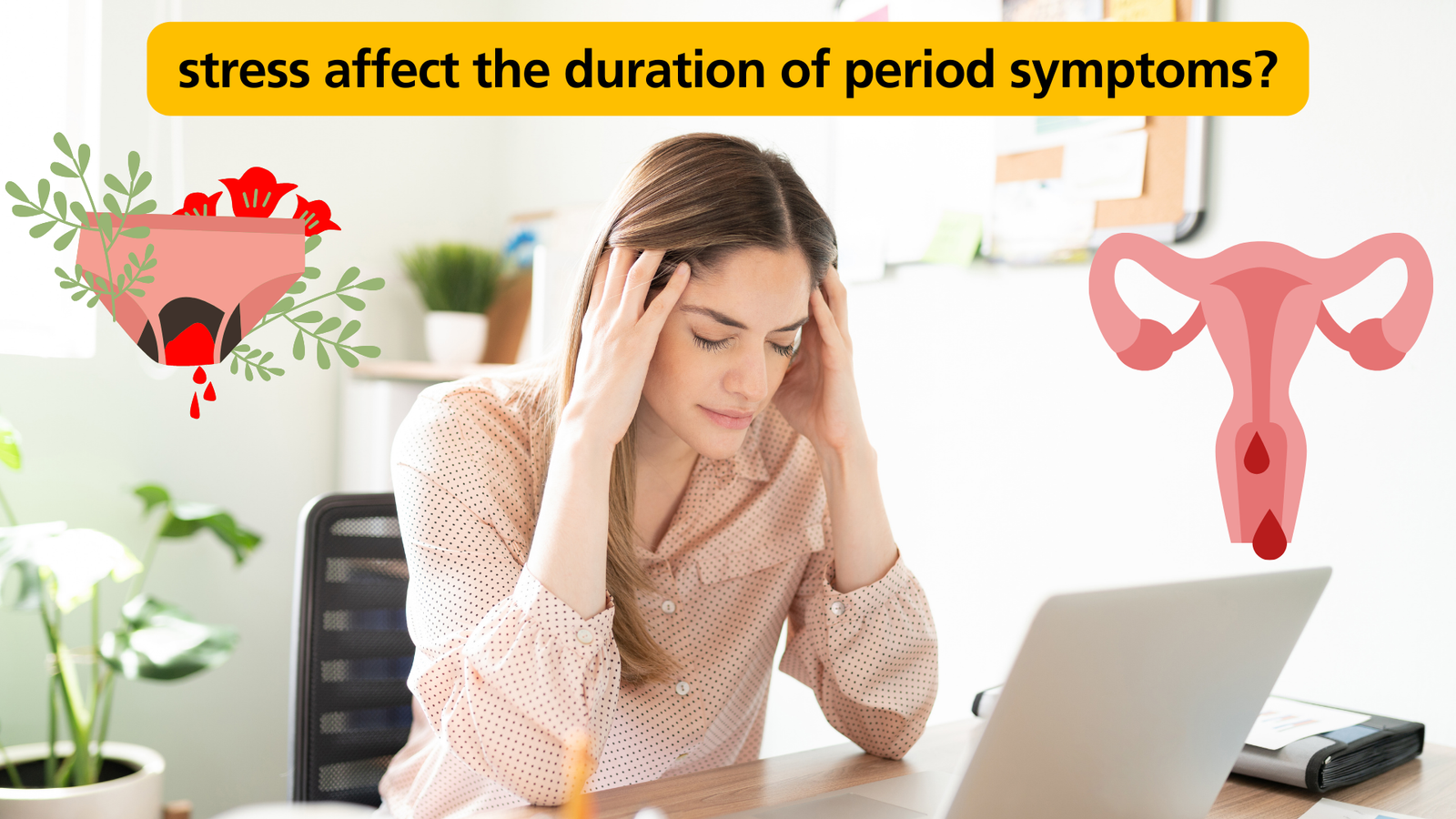Let’s talk about a topic that’s often whispered about but deserves to be shouted from the rooftops: periods. Ah, yes, that monthly visitor that can bring a cocktail of emotions, cravings, and sometimes, pain. But have you ever noticed that when life gets a little too stressful, your period seems to tag along for the ride, overstaying its welcome? Well, buckle up because we’re about to dive deep into the intriguing relationship between stress and the duration of period symptoms.
Understanding Period Symptoms
Types of Period Symptoms
Before we get into the nitty-gritty, let’s quickly recap what period symptoms entail. From cramps to mood swings, bloating to fatigue, periods can unleash a whirlwind of sensations that vary from person to person.
Factors Influencing Period Duration
Several factors can influence how long your period lasts, including genetics, lifestyle, and underlying health conditions. But could stress also be pulling the strings?
The Connection Between Stress and Periods

Impact of Stress on Hormones
Stress isn’t just a mental burden; it’s a hormonal havoc-wreaker too. When stress levels soar, the body releases cortisol, aka the “stress hormone.” This surge in cortisol can throw other hormones, like estrogen and progesterone, off balance, potentially disrupting your menstrual cycle.
Stress and Menstrual Cycle
Your menstrual cycle isn’t just about bleeding; it’s a delicate dance of hormones orchestrated by your body. Stress can crash this party by interfering with the communication between your brain and reproductive organs, leading to irregularities in your cycle.
Scientific Studies on Stress and Periods
Research Findings
Numerous studies have delved into the relationship between stress and periods. While some suggest a correlation between high stress levels and longer periods, others tread cautiously, emphasizing the need for further research to establish causation.
Correlation vs. Causation
It’s the age-old dilemma: did stress cause your marathon period, or is it just a coincidental sidekick? While evidence points to stress playing a role in period duration, teasing out causation from correlation remains a tricky task for researchers.
Ways Stress May Influence Period Symptoms

Hormonal Imbalance
Stress-induced hormonal imbalances can throw your menstrual cycle out of whack, potentially prolonging the duration of your period.
Changes in Menstrual Flow
Ever noticed your flow fluctuating when stress comes knocking? Stress can impact blood flow to the uterus, affecting the shedding of the uterine lining and extending the duration of bleeding.
Increased Pain and Discomfort
Stress doesn’t just mess with your mind; it can ramp up those cramps and make every twinge feel like a dagger. Increased stress levels may amplify period pain, making those few days of the month even more challenging to bear.
Managing Stress for Better Periods

Stress-Relief Techniques
When stress threatens to hijack your menstrual cycle, arm yourself with an arsenal of relaxation techniques. Whether it’s deep breathing, meditation, or indulging in your favorite hobbies, find what soothes your soul and helps keep stress at bay.
Lifestyle Changes
Sometimes, the best defense against stress is a good offense. Prioritize self-care, nourish your body with wholesome foods, stay hydrated, and carve out time for exercise. A healthy lifestyle can bolster your resilience against stress and promote hormonal balance.
Conclusion
In the intricate tapestry of the human body, stress and periods share a complex relationship. While stress can undoubtedly throw a wrench into your menstrual cycle, the extent of its influence varies from person to person. By understanding how stress impacts your body and implementing effective stress management strategies, you can navigate your periods with greater ease and grace.
FAQs
Can stress make your period stop?
Stress can sometimes cause irregularities in your menstrual cycle, including skipped periods or irregular bleeding patterns. However, if you experience prolonged absence of periods, it’s essential to consult with a healthcare professional to rule out underlying health concerns.
How can I reduce stress during my period?
Incorporating stress-relief techniques such as deep breathing, meditation, gentle exercise, and self-care activities can help alleviate stress during your period. Additionally, maintaining a healthy lifestyle, including balanced nutrition and adequate sleep, can contribute to overall well-being.
Does exercise help with stress-related period symptoms?
Exercise can be beneficial for managing stress and may help alleviate period symptoms such as cramps and mood swings. Engaging in regular physical activity releases endorphins, which are natural mood lifters, and promotes relaxation.
Can stress cause irregular periods?
Yes, stress can disrupt hormonal balance and interfere with the regularity of your menstrual cycle, leading to irregular periods. Managing stress through relaxation techniques and lifestyle modifications may help restore hormonal equilibrium and promote regular menstrual cycles.
Can stress delay ovulation and menstruation?
High levels of stress can potentially delay ovulation and menstruation by disrupting the intricate hormonal interplay involved in the menstrual cycle. Stress management strategies and prioritizing self-care can support hormonal balance and help mitigate these effects.
